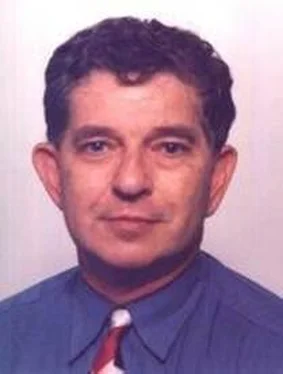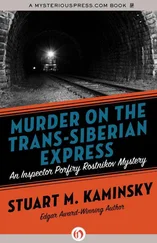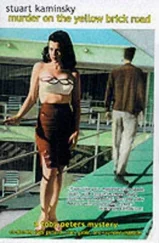David listened intently as I filled him in on my day over burgers at the Sunset Strip Hamburger Hamlet. It had a Southern plantation motif carried through to the point that the waitresses were all black and the customers were all white. I felt like Scarlet O’Hara sipping mint juleps with David Horvitz. Well, he didn’t look much like Rhett.
David was a TV writer, working for a writer-producer named Roy Huggins on a new Western series at Warner Brothers that was supposed to premiere in the fall on ABC. He told me it was called “Maverick” and starred a guy named James Garner who David thought was going to be a big star. And, he said, the lead character wasn’t a gunfighter, like on all the other Westerns, but a card sharp and confidence man who was basically a coward and ran from danger.
I laughed, thinking he was joking. When he made me realize he wasn’t, I said the American public would never stand for it. It didn’t have a chance to succeed. He thanked me for my encouragement.
“But what would possess somebody to think up a hero who was a coward?” I persisted.
David said, “I have the feeling at some level, conscious or not, Roy patterned the Maverick character after himself.”
I looked up, puzzled. He went on, “Roy named names to HUAC and saved his career. He says he’s regretted it ever since.”
I was dumbfounded. “But how could you work for someone who did that?” I said.
“The same reason he did what he did. In order to work.”
When we got back to David’s neo-Gothic apartment on Fountain Avenue, he raced in to answer the ringing phone and I followed. He surprised the hell out of me by saying, “It’s for you.” It was Michael Wilson begging off for tonight. He said something had come up, and asked if we could meet for breakfast tomorrow instead at Nate ’n Al’s on Beverly Drive? I agreed. And hung up, puzzled. He’d sounded nervous. “What could have happened to make him cancel?” I said out loud.
David replied, “You’re the detective.”
He was right. I grabbed my purse and camera. “Can I borrow your car again?” He shook his head. “No. You can borrow me.”
And we piled in, him at the wheel.
Twenty minutes and a trip over Laurel Canyon later we were coasting to a stop, lights off, on a winding road in the hills of Studio City overlooking the San Fernando Valley. We parked across the street from 11662 and waited. But not for long.
At nine, an old black Cadillac pulled out of the driveway. I couldn’t make out the driver but we figured it was Michael Wilson. David followed, leaving a block between us and the Caddy. “Funny, you wouldn’t think a Communist would drive a Cadillac,” I said.
“We don’t know if he is or ever was a Communist,” said David. “He just wouldn’t tell the committee or name names, is all we know.”
“I thought the Unfriendly Ten all took the Fifth Amendment.”
“That wouldn’t have made them guilty. But even so, they didn’t. Ironically, if they had, they wouldn’t have gone to prison. But they felt they weren’t guilty of anything and therefore shouldn’t hide behind it. They pled the First Amendment, believing that freedom of speech included the freedom not to speak, and that the committee had no right to force them.”
“Is that a legal argument or wishful thinking?” I responded.
“Word has it that if two liberal Supreme Court justices hadn’t died before the case got put in front of the Court, they would probably have won.”
I whistled through my teeth at the vicissitudes of luck and history.
We followed Wilson’s car back over Laurel Canyon to Beverly Hills. It pulled up in front of a large fur shop on Wilshire Boulevard just east of La Cienega. Flyer Furriers and Fur Storage said the neon sign. A moment later a Pontiac woody station wagon pulled up right behind, its Indian-head hood ornament aglow, then a Chevy panel truck. “Left-wing Jews don’t buy Fords,” David whispered. One man got out of each and they conferred quietly under a street light.
“Do any of them look familiar?” I asked David. He nodded. “Yes. They’ve all been in the paper. That is Wilson,” he said, indicating the man we’d followed. He was tall, forties with prematurely white hair. “The others are Herbert Biberman and Paul Jarrico. Biberman’s a director. Jarrico’s a writer-producer. They’re blacklisted, too.” Biberman was barrel-chested and intense in his mannerisms. Jarrico was shorter, dumpy looking, and spectacled.
The men got back in their cars, turned the corner and into the parking lot behind the store. We waited a moment, then followed on foot.
By the time we got to the back of the building, a double door was open and the men were apparently inside. We crouched down in the dark. After a moment Jarrico came out carrying a cardboard carton, about twelve by eighteen inches. I swallowed hard and whispered to David, “Isn’t that what they call a transfer file?” He nodded. “Yes, the studios use them to store scripts.” It wasn’t scripts I was worried about, but body parts.
Jarrico slid the box into the van. The others followed, each carrying another similarly shaped carton. I pictured three dead wives lying in pieces in the furrier’s refrigerator. They loaded the boxes into the vehicles and went back inside the building, then came back again with more cartons and put them in the cars.
I decided I was being silly. Obviously they weren’t body parts; they were fur coats. “Have we caught three blacklisted Hollywood men robbing a fur store?” I whispered to David.
“Would furs be stored in cartons like that?”
“No, I guess not,” I said. “What could they have in there?”
As if on cue, Biberman slipped, dropping the box he was holding, and several disc-shaped round cans, about an inch thick and twelve inches in diameter, rolled out of it and across the blacktop.
David stifled a laugh. “Those are film cans,” he whispered. “They’ve been using the furrier’s refrigerator to store their film.”
“Why?” I asked, as the men finished loading their vehicles, and David and I, crouched down, ran back to his car.
“They made an independent movie,” he whispered. “It’s called Salt of the Earth. Wilson wrote it, Jarrico produced it, and Biberman directed. They all worked for free and raised the budget from private investors. It’s a dramatized documentary about a union strike by poor Mexican-American mineworkers in New Mexico. I read the script. It’s wonderful, sort of Italian neo-realism, like Vittorio de Sica’s Bicycle Thief .
“The studios, and some congressmen, and Howard Hughes, all tried like mad to keep them from making it. There were demonstrations against the film. The cast and crew were thrown out of their hotel in New Mexico. Before they were finished shooting, the State Department deported their Mexican leading lady for no reason. And two of the buildings they were using were burned down.”
I couldn’t imagine such a thing.
“The union, the IATSE, tried to keep every crew person in Hollywood from working on it. And to keep every laboratory in the country from processing the film. They must have been hiding the work print in the furrier’s refrigerator so it wouldn’t get set afire by some patriotic citizen.”
“Jesus,” I sighed. “I thought this was America.”
“Apparently it is except when it’s under stress,” he said with a sigh.
We followed the caravan at a safe distance to an old dilapidated bungalow on the outskirts of L.A., where they unloaded the cans. Through one of the small windows, we saw a five-foot-high Rube Goldberg-like apparatus full of wheels and levers, and a little four-by-six-inch screen. David told me was a Moviola, a film-editing machine. “This must be their secret editing room,” David whispered.
Читать дальше












